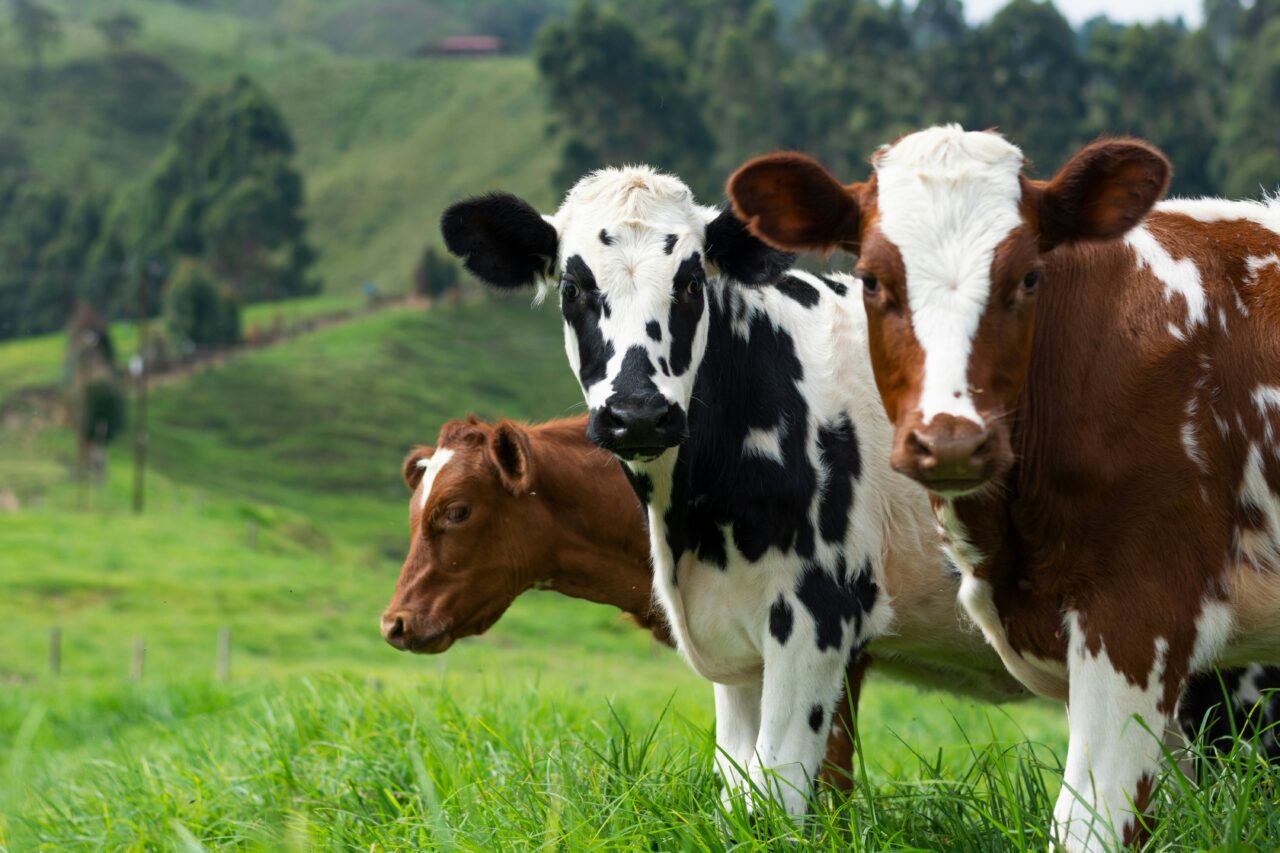A report from environmental NGOs and food policy groups says tackling greenhouse gas emissions from livestock should be high on the agenda at the climate summit in Brazil.

More greenhouse emissions are being generated by 45 major meat and dairy companies than by the world’s second largest oil producer Saudi Arabia, according to a report from prominent environmental and food policy groups.
Roasting the Planet: Big meat and dairy’s big emissions has been published by Foodrise, Friends of the Earth US, Greenpeace Nordic, and the Institute for Agriculture and Trade Policy, to highlight an issue they said needed urgent action at the COP30 climate meeting in Belém, Brazil, which starts on 10 November.
The report estimated that the 45 large companies surveyed in the report generated more than a billion tonnes (CO2-equivalent) of greenhouse gas (GHG) emissions in 2023 – more than the reported emissions of Saudi Arabia. The largest five emitters surveyed — JBS, Marfrig, Tyson, Minerva, and Cargill — together produced an estimated 480m tonnes of GHGs, higher than the emissions of some of the largest global oil companies. Brazilian-based meat company JBS on its own was estimated to account for 24% of the combined GHG emissions from the surveyed firms.
Over half of emissions from the sector came from methane, a short-lived but potent GHG, generated from enteric fermentation – mainly cattle burps – and manure. The industry also generates CO2 from land use change and energy use, as well producing nitrous oxide, another potent GHG, from fertilisers for animal feed. Methane emissions from the 45 companies were estimated to be greater than those of all EU countries and UK put together.
Transforming agriculture and food systems is one of the priority topics identified in the official action agenda for COP30, as concerns over the impact of emissions from the sector grow.
The UN estimated in 2021 that global methane emissions needed to fall by over 40% in the current decade as part of efforts to help stop global warming from exceeding the 1.5°C limit agreed at the COP21 Paris climate conference in 2015. Instead, they have continued to rise.
“As governments head to COP30 in the heart of the Amazon — an ecosystem devastated by global meat giants — scientists are clear that a failure to bring down agricultural emissions will torpedo us well past the Paris 1.5°C red line,” said Shefali Sharma, global agriculture policy expert for Greenpeace Germany.
Farms that restore nature and communities, rather than corporate-controlled factories, should be at the centre of global food systems, Sharma said, adding: “It’s not too late for governments to commit to such a transition in their climate plans coming out of this COP”.
The report said a shift to healthy, sustainable and plant-rich diets, alongside much smaller-scale animal farming, needed to be backed up by supportive policy.
Policy measures
The authors called for a series of policy measures to be implemented, including the introduction of mandatory corporate emissions reporting, the setting of binding targets for agricultural GHG emissions cuts, and implementation of policies curbing overproduction and overconsumption of meat and dairy leading to reduced herd sizes and protein diversification. They also said public funds needed to be shifted away from large-scale industrial animal agriculture.
The big meat and dairy companies have said they are taking various steps to bring down emissions or tackle deforestation. JBS, for example, has outlined plans to invest more than $1bn in upgrading facilities and equipment to make them greener, reduce emissions in its facilities by 30% by 2030 and use 100% renewable electricity by 2040, among other measures.
The report described the industry as providing “false solutions, techno-fixes and incremental reforms to business-as-usual livestock practices” that tended to be focused on reducing emissions intensity of production rather than cutting overall emissions. “These measures at best offer limited emissions reduction potential, and at worst greenwash,” according to the report.






